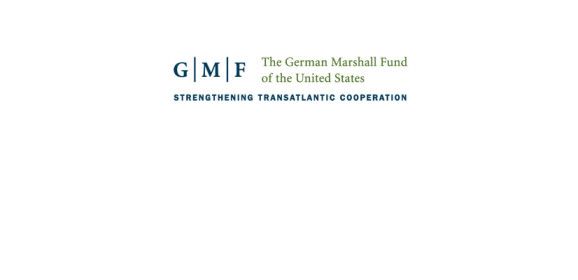Section: The German Marshall Fund of the United States (USA)
The Awakening of Societies in Turkey and Ukraine: How Germany and Poland Can Shape European Responses
Among the European Union’s neighbors to the east and southeast, Turkey and Ukraine clearly stand out in their strategic importance. Both countries are central to the broader confrontation between Russia and the West, Turkey holds the keys to Europe’s managing the refugee crisis and to Western engagement with Near Eastern conflicts,...
Ivan Vejvoda Tertimony – U.S. Policy Toward National Self-Determination Movements
Mr. Chairman, thank you for the invitation to come and testify before you today. It is an honor to be here before this Subcommittee of the House of Representatives of the U.S. Congress. I am here to offer my personal views on the question of self-determination. Introduction The democratic revolutions at the end of the 18th and beginning of 19th...
Europe Must Adapt to a Dangerous World
BRUSSELS: The terrorist attacks in Brussels on March 22, following those in Paris last November, mark a turning point in the modern history of Europe. The European Union had already been weakened by a perfect storm of crises – the hemorrhaging of the eurozone, the Russian invasion of Ukraine, a Biblical tide of Middle Eastern refugees and the...
Europe’s Changing Geopolitics
The Cipher Brief: Is the landscape of unity within the EU changing and why? Michael Leigh: The fundamentals of EU unity remain in place: the single market, the EU’s exclusive responsibility for trade, and the primacy of EU law over national law. The EU and its member states are the largest providers of development assistance in the world....
Brussels Forum 2016: Russia, Ukraine, and the Future of Europe
…read more Source: The German Marshall Fund of the United...
Going the Distance, Together: Transatlantic Leadership Amid Crisis on the Home Front
This is part of a series from our Young Professionals Summit, a side event of Brussels Forum. During the inaugural session of the GMF Young Professionals Summit, European and North American leaders challenged young Altanticists to consider the causes and effects of overlapping crises spanning the two continents. Europe and North America face...
Leveraging Europe’s International Economic Power
In an article written in 1978 to make the case for a U.S. economic diplomacy toward the USSR, Samuel Huntington argued that “harnessing economic power to foreign policy goals presents formidable obstacles: bureaucratic pluralism and inertia; congressional and interest group politics; the conflicting pulls of alliance diplomacy; and most...
Why are Europe’s Crises ‘Existential’?
Transatlantic Take(BRUSSELS) – March 2016 may well make it into the history books as a make or break month for the EU. The EU-Turkey Summit of March 7 and the European Council Summit of March 17-18 will have to produce short and long term measures addressing the current mayhem caused by the European governments’ disorderly responses...
Thinking The Unthinkable: Can Japan Bring Russia Back to the G7?
For Japanese Prime Minister Shinzo Abe, 2016 is a special year. As the chairman of the G7 summit, he aims to showcase Japan’s global leadership. The prime minister’s diplomatic zest is well-known and largely fueled by his “Abe Doctrine.” This doctrine promotes an ambitious, multi-vector foreign policy that has made him the most...
Russia’s Military: On the Rise?
After the 2008 war with Georgia, Russia started its most radical and comprehensive military reform in several decades. It is aimed at transforming the outdated mass mobilization army into combat-ready armed forces that are able to pursue a broader set of functions — from nuclear and non-nuclear deterrence to conventional warfare in local and...



